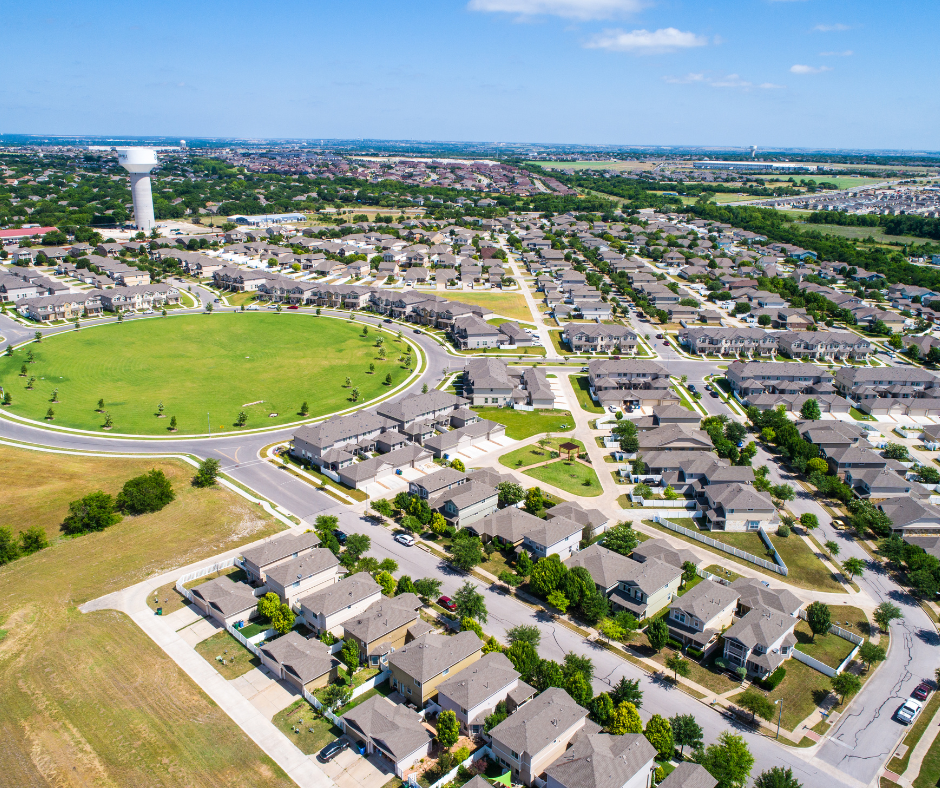
The Future of Real Estate: 17 Tech Trends Changing the Industry
Summary
Reflection Questions
Journal Prompt
Like many other fields, the real estate industry is undergoing a transformation driven by the rapid adoption of new technologies. These advancements are not only making the market more efficient and accessible but also reshaping how properties are bought, sold, and managed. From virtual reality to blockchain, technology is playing a crucial role in modernizing real estate practices. In this article, we explore 17 tech trends that are changing the real estate landscape both in the U.S. and internationally—highlighting the companies leading these innovations.
17 Tech Trends Changing the Real Estate Industry in the US and Internationally
PropTech (Property Technology)
PropTech, or property technology, encompasses a range of digital innovations aimed at making the real estate market more efficient and accessible. Two significant areas within PropTech are virtual and augmented reality (VR/AR) and big data and analytics.
Virtual and Augmented Reality

Virtual and augmented reality are revolutionizing the way potential buyers and renters view properties. Companies like Matterport and Zillow are leading the way by offering immersive 3D virtual tours that allow users to explore properties from anywhere in the world.
These technologies provide a lifelike experience, enabling viewers to walk through homes, inspect details, and get a true sense of the space. This is particularly beneficial for international buyers who cannot visit properties in person, saving them time and travel costs while expanding their real estate options.
Big Data and Analytics
Big data and analytics are transforming how real estate markets are understood and operated. Firms like Redfin and CoreLogic utilize vast amounts of data to predict market trends, property values, and investment opportunities. By analyzing historical data, current market conditions, and consumer behavior, these companies can provide valuable insights that help investors make informed decisions.
Additionally, advanced analytics enable personalized marketing strategies, allowing real estate companies to tailor their services to individual preferences and needs, thereby enhancing customer satisfaction and increasing conversion rates.
Smart Homes and IoT (Internet of Things)

The integration of smart home technologies and the Internet of Things (IoT) is significantly enhancing the functionality, security, and energy efficiency of residential properties. These innovations are not only making homes more comfortable and convenient but also more sustainable and secure.
Smart Thermostats and Lighting
Smart thermostats and lighting systems, like those offered by Nest (owned by Google) and Philips Hue, are revolutionizing home energy management. These devices learn user habits and adjust settings automatically to optimize energy use, reducing waste and lowering utility bills.
For example, smart thermostats can adjust heating and cooling based on occupancy patterns, while smart lighting systems can be programmed to turn off when rooms are unoccupied or dim during daylight hours. These technologies contribute significantly to energy efficiency, providing both cost savings and environmental benefits.
Home Security Systems
Advanced home security systems from companies such as Ring (owned by Amazon) and ADT are providing homeowners with enhanced peace of mind through real-time monitoring and remote access capabilities. These systems include features like video doorbells, security cameras, motion detectors, and smart locks, all of which can be monitored and controlled via smartphone apps.
Homeowners can receive instant alerts about suspicious activity, view live footage of their property, and even control locks remotely to allow access to trusted individuals. This real-time connectivity not only improves security but also adds a layer of convenience and control for homeowners.
Blockchain and Cryptocurrency
Blockchain technology and cryptocurrency are transforming real estate transactions by enhancing transparency, security, and efficiency. These innovations are providing new ways to manage property records, streamline transactions, and democratize real estate investment.
Smart Contracts
Smart contracts, which are self-executing contracts with the terms directly written into code, are revolutionizing the way real estate transactions are conducted. Platforms like Propy and Ubitquity are utilizing blockchain to automate and secure real estate deals.
These smart contracts eliminate the need for intermediaries, such as lawyers and brokers, by automatically enforcing the terms of agreements. This reduces the potential for fraud, speeds up transaction processes, and lowers costs associated with traditional methods.
Immutable Record-Keeping for Titles
Blockchain’s immutable record-keeping capabilities are proving particularly valuable for land registries, especially in developing countries or regions plagued by land grabs. Companies like Bitland in Africa (specifically Ghana) and ChromaWay are leveraging blockchain to create tamper-proof digital land registries.
These systems ensure that property titles are securely recorded and easily verifiable, reducing disputes and corruption. This is crucial in areas where land ownership records are often unreliable or vulnerable to manipulation, providing a reliable and transparent system for land registration.
Tokenization of Real Estate Assets
The tokenization of real estate assets is opening up new investment opportunities by enabling fractional ownership. Platforms like RealT and Harbor allow properties to be divided into digital tokens, which can be bought and sold on blockchain marketplaces.
This makes real estate investment more accessible to a broader range of investors, as they can purchase small fractions of high-value properties. Tokenization also provides greater liquidity, as these tokens can be traded more easily than traditional real estate assets, thereby democratizing investment and increasing market participation.
Artificial Intelligence (AI) and Machine Learning
Artificial Intelligence (AI) and Machine Learning (ML) are driving significant advancements in the real estate industry by providing powerful tools for data analysis, customer service, and operational efficiency. These technologies are enabling more accurate predictions, better decision-making, and enhanced customer interactions.
Predictive Analytics
AI and ML are transforming predictive analytics in real estate by leveraging vast amounts of data to forecast market trends and property values. Companies like HouseCanary and Zillow are at the forefront of this innovation. HouseCanary uses AI to analyze over 40 years of property data and millions of transactions to predict future property values and market trends with high accuracy.
Similarly, Zillow’s Zestimate algorithm employs machine learning to provide real-time property value estimates, taking into account various factors such as location, market conditions, and historical trends. These predictive analytics tools help investors, buyers, and sellers make informed decisions by providing insights into future market behaviors and property values.
Customer Service
AI-powered chatbots and virtual assistants are revolutionizing customer service in the real estate sector. Companies like REA Group and Apartment Ocean are deploying AI-driven solutions to enhance client interactions. REA Group uses AI chatbots to handle customer inquiries, schedule property viewings, and provide personalized property recommendations based on user preferences.
Apartment Ocean’s AI assistant automates responses to common questions, freeing up real estate agents to focus on more complex tasks. These AI tools not only improve efficiency but also ensure that customers receive prompt, accurate, and personalized assistance around the clock.
3D Printing

3D printing is emerging as a groundbreaking technology in the construction industry, offering innovative solutions for building affordable housing quickly and cost-effectively. By automating the construction process, 3D printing significantly reduces labor costs and material waste, making it an attractive option for addressing housing shortages and affordability challenges.
Affordable Housing
3D printing is making strides in affordable housing by drastically cutting down both the time and costs associated with traditional construction methods. Companies like ICON and Apis Cor are pioneering this space with their advanced 3D printing technologies.
ICON, an Austin-based company, has developed the Vulcan printer, capable of constructing a house in just 24 hours at a fraction of the cost of conventional building methods. Their partnership with non-profit New Story has resulted in the construction of 3D-printed homes for low-income families in Mexico and other developing regions.
Similarly, Apis Cor, known for its mobile 3D printing technology, has demonstrated the ability to print entire structures on-site within a day. These advancements are not only accelerating the construction process but also making it more sustainable by using eco-friendly materials and minimizing waste. By leveraging 3D printing, these companies are addressing the global housing crisis, providing safe, durable, and affordable homes to those in need.
Drones

Drones, or unmanned aerial vehicles (UAVs), are transforming the real estate industry by providing new capabilities in aerial photography, videography, land surveys, and inspections. These high-tech tools offer unique perspectives and detailed information that traditional methods cannot match, enhancing property marketing and management.
Aerial Photography and Videography
Drones are revolutionizing property marketing by offering stunning aerial photography and videography that showcase properties from unique angles and perspectives. Companies like DroneBase and DJI are leading this transformation. DroneBase, for instance, provides professional drone services that capture high-resolution images and videos, highlighting property features, landscapes, and surrounding areas in a way that ground-level photography cannot.
DJI, a major drone manufacturer, offers advanced drones equipped with high-quality cameras, enabling real estate agents to create compelling visual content that attracts potential buyers and renters. This aerial footage not only enhances online listings but also provides a more comprehensive view of the property, helping clients make more informed decisions.
Land Surveys and Inspections
Drones are also being used for detailed and accurate land surveys and property inspections, streamlining processes that were once time-consuming and labor-intensive. Companies like Kespry specialize in using drone technology for surveying and inspection purposes.
Kespry offers drone-based inspection services that can assess the condition of roofs, infrastructure, and other property elements without the need for manual inspections. These drone surveys and inspections provide precise data, reduce costs, and improve safety by eliminating the need for surveyors and inspectors to access potentially hazardous areas.
Sustainable and Green Building Technologies

Sustainable and green building technologies are becoming increasingly important in the real estate industry as the demand for environmentally friendly and energy-efficient structures grows. These technologies not only reduce the environmental impact of buildings but also offer long-term cost savings and healthier living environments.
Energy-Efficient Building Materials
The use of energy-efficient building materials is a key component of sustainable construction, aimed at reducing energy consumption and minimizing the carbon footprint of buildings. Companies like Saint-Gobain and Owens Corning are at the forefront of developing and providing these innovative materials.
Saint-Gobain produces a range of high-performance insulation products that improve thermal efficiency, reduce energy costs, and enhance indoor comfort. Owens Corning specializes in energy-efficient roofing and insulation solutions that help maintain consistent indoor temperatures and lower heating and cooling demands. By incorporating these advanced materials, buildings can achieve significant energy savings, contributing to a more sustainable future.
LEED Certification
LEED (Leadership in Energy and Environmental Design) certification is a globally recognized standard for sustainable construction, promoting environmentally responsible building practices and the use of green technologies. Companies such as Skanska and Turner Construction are leading the way in adopting LEED standards for their projects.
Skanska, a multinational construction company, integrates sustainable practices in their building processes, aiming for high LEED ratings on their projects. Turner Construction, known for its commitment to sustainability, has completed numerous LEED-certified projects, incorporating energy-efficient systems, renewable energy sources, and sustainable materials. LEED certification not only demonstrates a building’s environmental performance but also enhances its marketability and value by meeting the growing demand for green buildings.
Automated Property Management

Automated property management is transforming the real estate industry by streamlining operations, improving efficiency, and enhancing tenant experiences. The integration of advanced software solutions and IoT devices is enabling property managers to handle routine tasks more effectively and maintain properties proactively.
Property Management Software
Property management software is revolutionizing the way property managers handle their day-to-day operations by automating routine tasks and providing comprehensive management tools. Companies like AppFolio and Buildium are at the forefront of this innovation. AppFolio offers a cloud-based property management platform that automates tasks such as rent collection, lease tracking, and tenant communication.
The software also provides features like accounting, reporting, and maintenance management, helping property managers to operate more efficiently and focus on strategic growth. Buildium, another leading provider, offers similar functionalities with additional tools for marketing vacancies, screening tenants, and managing inspections. By leveraging these software solutions, property managers can save time, reduce errors, and enhance their service quality, ultimately leading to better tenant satisfaction and retention.
IoT Devices for Maintenance
The use of IoT (Internet of Things) devices in property management is enabling predictive maintenance and real-time monitoring of building systems, thereby preventing issues before they become costly problems. Companies like SmartRent and PointCentral are pioneering this space with their innovative solutions.
SmartRent offers a comprehensive IoT platform that integrates smart locks, thermostats, sensors, and cameras to provide remote monitoring and control of rental properties. The system can alert property managers to potential maintenance issues, such as water leaks or HVAC malfunctions, allowing for timely interventions.
PointCentral, a subsidiary of Alarm.com, provides similar IoT solutions tailored for property management, including smart access control and energy management systems. These IoT devices not only enhance the efficiency of property maintenance but also contribute to energy savings and improved security, creating a more appealing living environment for tenants.
Virtual Real Estate
The concept of virtual real estate in the metaverse is gaining traction as digital worlds become more immersive and interactive. A couple of short years ago, platforms like Decentraland and The Sandbox led this revolution by creating virtual spaces where users can buy, sell, and develop virtual properties.
These digital real estate markets allow users to invest in virtual land, build structures, and monetize their virtual assets through experiences, events, and advertising. As the metaverse expands, virtual real estate offers unique opportunities for investment and innovation, blurring the lines between physical and digital spaces.
*Of course, we would be remiss in failing to note that many in the real estate industry (and beyond) view virtual real estate as a gimmick.
Biometric Access Control Systems
Biometric access control systems are enhancing security and convenience in residential and commercial properties by using unique biological traits for entry. Companies like Suprema and HID Global are at the forefront of this technology. Suprema offers fingerprint and retina scanners that provide secure, keyless entry to buildings, reducing the risk of unauthorized access.
HID Global’s facial recognition systems personalize home environments by adjusting settings like lighting and temperature based on the identified user. These biometric solutions offer a high level of security and a seamless, user-friendly experience, making properties safer and more intelligent.
Augmented Reality (AR) for Interior Design

Augmented Reality (AR) is transforming interior design by allowing users to visualize and customize their spaces before making any physical changes. Companies like Houzz and IKEA are utilizing AR through interactive design apps.
Houzz’s app lets users place 3D models of furniture and decor in their rooms to see how they fit and look in real-time. IKEA’s Place app offers similar functionality, enabling accurate space planning and helping customers make informed purchasing decisions. These AR tools enhance the design process, making it more interactive and precise.
AI-Powered Predictive Maintenance
AI-powered predictive maintenance is revolutionizing property management by using predictive analytics to foresee equipment failures and prevent maintenance issues. Companies like IBM and Schneider Electric are leading this innovation. IBM’s Maximo uses AI to analyze data from various building systems, predicting when maintenance is needed to avoid costly breakdowns.
Schneider Electric’s EcoStruxure platform integrates smart building management with AI to efficiently manage building systems, optimizing performance and energy use. These technologies ensure buildings operate smoothly, reducing downtime and maintenance costs.
Nanotechnology in Building Materials
Nanotechnology is advancing building materials, making them more durable and efficient. Companies like CEMEX and DryWired are pioneering this field.
Quantum Computing for Real Estate Analysis
Quantum computing promises to revolutionize real estate analysis by solving complex data problems faster than traditional computers. Companies like D-Wave and IBM are exploring quantum computing applications. D-Wave’s quantum computers can optimize real estate portfolios by analyzing vast datasets to identify the best investment strategies.
IBM’s quantum computing efforts aim to enhance market predictions and risk assessments with greater accuracy. As quantum computing technology matures, it will provide powerful tools for real estate professionals to make more informed decisions.
Smart Cities and Urban Tech

Smart city initiatives are integrating advanced technologies to improve urban living. Companies like Siemens and Cisco are leading the development of IoT sensors for city management. Siemens’ IoT solutions monitor and manage urban infrastructure, such as traffic flow and energy use, enhancing city efficiency.
Cisco’s digital twin technology creates virtual replicas of cities to simulate urban planning scenarios, aiding in better decision-making. These technologies enable cities to become more responsive and sustainable, improving quality of life for residents.
Holographic Displays for Property Marketing
Holographic displays are creating immersive property marketing experiences. Companies like Realfiction and Holoxica are leveraging this technology. Realfiction’s holographic displays provide 3D property tours, allowing potential buyers to explore homes in detail without being physically present.
Holoxica’s interactive showrooms showcase multiple property designs in a compact space, enhancing the marketing and sales process. These holographic solutions offer a new level of engagement, making property marketing more dynamic and effective.
Advanced Geospatial Technology
Advanced geospatial technology is providing high-resolution mapping and monitoring capabilities for real estate and urban development. Companies like Trimble and Planet Labs are at the forefront of this innovation. Trimble uses LiDAR (Light Detection and Ranging) technology for precise topographical surveys, aiding in accurate land assessment and planning.
Planet Labs employs satellite imagery and remote sensing to monitor environmental changes and urban development trends. These geospatial tools provide valuable insights for real estate professionals, enhancing planning and decision-making processes.
Final Thoughts on Real Estate Tech Trends

As these technologies continue to evolve, they will further reshape the landscape of real estate, driving greater transparency, sustainability, and inclusivity in the market. Embracing these trends will not only improve the experiences of buyers, sellers, and investors but also pave the way for a more dynamic and resilient real estate industry in the future.








